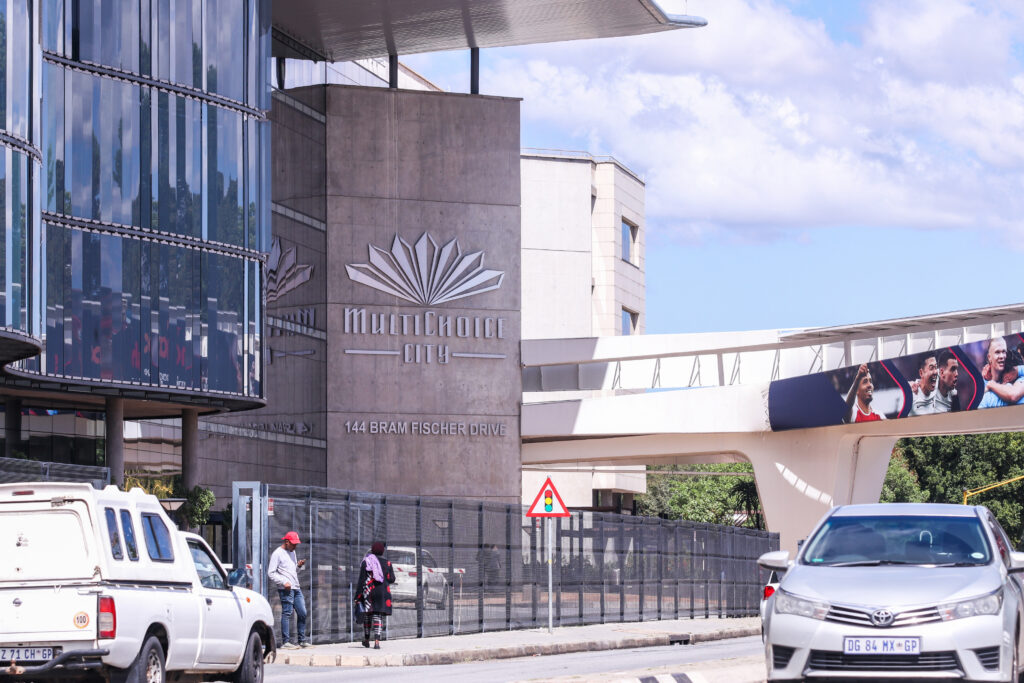You can also listen to this podcast on iono.fm here.
SIMON BROWN: I’m chatting with Khwezi Jackson, Client Relationship Manager at 10X Investments. Khwesi, appreciate the time.
A stark reality for South Africans is that many of us, when we get to retirement age, simply aren’t going to have enough money for that retirement that we have dreamed of. We’ve worked our entire lives, but we just kind of haven’t got it right towards the end, and we don’t have that pot of cash to aid us for our, I don’t know, 10, 20, 30 years of retirement.
KHWEZI JACKSON: Thank you very much for the time this morning, Simon. And yes, that’s the reality of call it 94% of South Africans who reach that golden age and just realise that there’s nothing actually left to retire with. It’s the saddest thing when you chat to someone at 65 or 60 and all they have is R100 000. What do you say to them? Where do you start?
SIMON BROWN: Yes, I don’t know where you do start. One of the truths is that in retirement we need less money than when we were working. I don’t know – if we’re earning, let’s say, R40 000 or something, our tax rate could reduce. We’re not saving for retirement anymore, so we need less than we needed while working. Is there sort of an ideal number for what that ratio should be?
KHWEZI JACKSON: There is. On our side we’re saying that the amount should be at least 60% to 75% of your last salary. I think you have to make it a number that’s palatable for most people in South Africa in that let’s call it R10 000, which is your salary. And so if my last salary at my company was R10 000 per month, if out of the provident fund or pension fund I can get at least R6 000 to R7 500 rand because my expenses have reduced, [and] I’m no longer putting money into the provident fund, debt, hopefully by that point in time I’ve paid off all your credit cards, bonds and things like that.
And if there are any kids in the picture, they’re no longer financially dependent on you, and your expenses should have reduced significantly by the time you get to retirement. So 60% to 75% of [your] salary should actually then suffice.
SIMON BROWN: I hadn’t thought around debt. In an ideal world you do get to retirement. Your big debt is usually your home. It’s going to be your bond. But you need to get to retirement with ideally no debt – maybe a little bit of credit card, but no significant debt because that can really punch a hole.
KHWEZI JACKSON: That is definitely true. I think sometimes we see people prioritising paying off the debt because you’re then sort of planning to make sure that when I finish the house [payment], maybe I can focus on my retirement.
But sometimes [with] money, I don’t know what happens when you’re finishing off paying a car; the R3 000 you were paying off monthly sometimes just disappears into the budget, and you don’t know where it went. It doesn’t actually go towards saving for retirement. And so you’ve got this paid off house, but you’re now sitting without an income. And yes, you can’t even pay your own rates and levies.
SIMON BROWN: I suppose it also depends on the house. You could sell it, perhaps downgrade, particularly if your kids have left home. That could also bring you a bit of cash. Really more than anything you are right; in the note you wrote around taking that ownership. It’s around re-evaluating, particularly. I’ve worked for a corporate before. Every month they take some money off your salary and you kind of think, well, that’s it, I’m sorted. The answer is well, maybe – but maybe not.
KHWEZI JACKSON: Yes. I think the one thing that I hoped the article I wrote was going to do is give the workers their voice back. I think these provident funds and pension funds are managed by executives, and I don’t think executives have the incentive to make sure that it is running for the benefit of the low-paid staff.
We’re no longer doing annual reviews. We just take the provident fund with one provider over 20 years, and never actually come back and check if it’s still working for the benefit of our staff. I think I’m seeing staff as well just outsourcing that responsibility to the company and sort of just resting in the comfort that, tick, I’ve got the provident fund.
But that’s not enough. You need to do your part as well. You need to be involved as well.
I was at a Wellness Day yesterday and talked to people who have been with our fund for the past six, seven years, and it was the first time that they were logging in and checking their balance. That is just crazy because, when I talk to them, people at retirement, this is the first time you’re seeing your R100 000. When you ask why it is so little, [it’s] compared to what? You’ve never checked for the past 20 or 30 years that you’ve been working.
So I’m calling on staff members, I’m calling on employees from the factory, every level of management, to say, ‘take responsibility’. We can’t just leave it to the company to say we’ve got the fund. We need to be asking what fees we are paying. Are we being overcharged? Is that why people, when they retire from this company, are not retiring with enough money?
SIMON BROWN: Yes. Run the numbers. You don’t need to be a rocket scientist. You can get a retirement calculator. There will be one on the 10X website. Go and have a look. For my age and what I have, am I on track? And if not, make some phone calls. Make some plans.
KHWEZI JACKSON: No, definitely – those retirement plans. In our provident fund we create a personalised retirement plan for each individual. So when you log on to the portal to check your balance, you can see – am I on track for myself? Is there an additional voluntary contribution that I can do as well?
And yes, again, there is over-reliance. The company makes a contribution, but I’ve seen contribution rates as little as 5%. Now, no matter how young you are, at 5% of your salary you’re never going to retire with enough money, so you need to do something as well to make sure you retire with enough money.
SIMON BROWN: The magic number – 10%, 15% I imagine.
KHWEZI JACKSON: Yes, 15% over 40 years. That should give you a good retirement over 30 years, assuming a return of 5%.
SIMON BROWN: On inflation after fees – and fees are hugely important. The other thing, of course, is dipping into your [fund]. In the old days you would quit your job and access it. Now we’ve got the Two-pot system, which has two pots. The Two-pot in one sense is great if you have a proper emergency, maybe a medical emergency, but it’s really not there for, I don’t know, holidays or stuff, because that is your future retirement that you are spending today.
KHWEZI JACKSON: Most definitely. I think when we go back to that example of I’m trying to replace at least 60% of my salary by the time I get to retirement, in this new Two-pot era, if every year I’m treating my savings pot as a bank account – I’m simply just putting money in and withdrawing, then instead of ending up with R6 000, I’m now ending up with only R4 000.
I think one of the things that we’re seeing in 10X – not just 10X, but in the industry as a whole as well, is that [of] the individuals who are withdrawing in this new tax year, 80%-plus also withdrew in the past [year]. So the encouragement is, please do not use the savings pot as an emergency fund for things that you can put up an extra emergency fund for – for example, in a unit trust or just a savings account with your bank.
SIMON BROWN: I suppose the key lesson there is having an emergency fund that’s outside of your retirement.
We’ll leave it there. Khwesi Jackson, client relation manager at 10X Investments, I appreciate the time.
Listen to the full MoneywebNOW podcast every weekday morning here.

 1 day ago
2
1 day ago
2






















 English (US) ·
English (US) ·